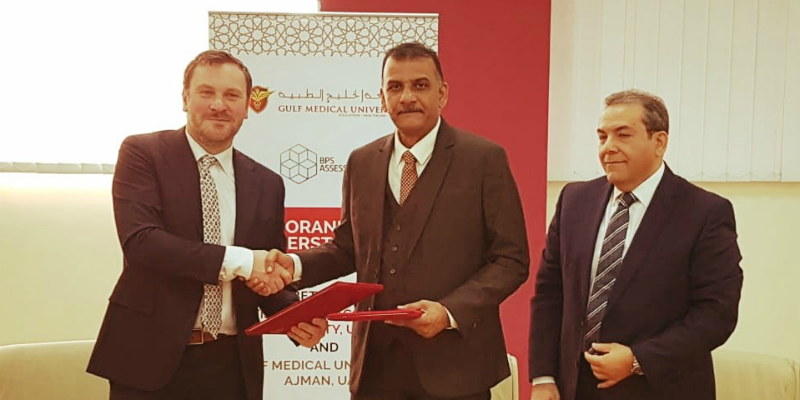Prescribing medicines is the primary tool used by all healthcare systems to treat disease, alleviate symptoms and prevent future illness. Although the majority of prescriptions are appropriate, many studies from around the world have drawn attention to the rates of prescribing errors and avoidable adverse drug reactions. In the UK, errors are found in around 10% of hospital and 5% of general practice prescriptions. These errors matter because they not only harm patients but present unnecessary costs attributable to failed care, prolonged hospital stays and increasing litigation.
We should not be surprised that errors are made since prescribers work under very high-pressured circumstances, full of distractions. They have a heavy burden of administration and require continuous multi-tasking which results in them being more error-prone. The number, age, and vulnerability of hospital patients have also progressively increased, as has the complexity of the treatment regimens for common disorders.
In response to this situation the British Pharmacological Society has collaborated with the UK Medical Schools Council to develop the Prescribing Safety Assessment (PSA), an online training and assessment package to promote better prescribing skills in healthcare. The PSA is a valid and reliable assessment that allows final year medical students to demonstrate that they have the necessary knowledge, skills and judgement (in relation to the safe and effective use of medicines) to begin their work as independent junior prescribers in UK hospitals. The PSA aims to bridge the gap between traditional pharmacology education and the practical application of that knowledge to patient care in the clinical environment. The PSA presents learners with realistic clinical cases where they are scored on their performance and receive targeted feedback to improve their future performance.
The PSA is supported by the UK’s General Medical Council and the Foundation Programme Board to the extent that all new entrants are expected to have passed it in order to enter training as a doctor in the UK, whether they come from UK medical schools or from overseas. Over 60,000 students from the UK and overseas have participated in the training and assessment, and 8,500 medical students sit the PSA each year. The assessment, along with its associated training material, is greatly appreciated by students who recognise the importance of prescribing skills to their future careers. Moreover, the PSA is making a critical contribution to improved patient safety in UK healthcare.
During 2017 the Society redeveloped the PSA platform and content to internationalise its appeal and relevance and in April of that year launched BPS Assessment as the vehicle for delivering this new version, the Prescribing Skills Assessment, to medical schools in Canada, Australia and New Zealand. Since then uptake of the PSA internationally has been very rapid with medical schools in Europe and the Middle East now adopting the PSA as part of their formative training and with pilots being run in India, China and Southeast Asia.
Beyond undergraduate training for doctors, BPS Assessment is also providing online assessment as continuing medical education. Doctors at Odense University Hospital, for example, will use the PSA in 2019 to demonstrate their prescribing competency. In November 2018, a five-year agreement was signed with the Royal College of Physicians and Surgeons of Canada for an ambitious collaboration to support safer prescribing by doctors in Canada. Representing a significant commitment by both organisations, the partnership has brought experts together to raise the profile of prescribing competency and to promote its importance through the joint development of education and assessment resources in this field. This Prescribing Safely Canada initiative is intended to help physicians assess their prescribing skills, identify gaps and help correct unsafe practices and cognitive bias through a feedback loop, while providing analytics of aggregate data that can inform the Royal College of systemic gaps.
There is mutual benefit for both the Royal College and the Society to collaborate around medication safety. For the Society, the Royal College is an attractive partner that can bring a new lens to the work of the Society by expanding to include formative rather than summative practice assessment, and assessments that would have a work-based flavour for those in practice. The Society is an equally attractive partner for the Royal College, with a robust technical platform allowing for international collaboration, educationally and psychometrically sound assessment tools, and global expertise on the dissemination of pharmacological knowledge.
In January this year BPS Assessment signed a Memorandum of Understanding with Gulf Medical University (GMU), one of the leading universities in the Gulf, for delivery of the PSA to candidates in the United Arab Emirates. BPS Assessment will create assessments and supporting materials, delivered through its online platform, and GMU will make available its first-class invigilated facilities.

Further developments include delivery of the PSA to other prescribing groups: pilot studies supported by Health Education England have already confirmed the feasibility and acceptability of the PSA for pharmacist prescribers. Our aim for the future is to harness the experience that we have gained from a project that was originally conceived to address a concern in UK healthcare and to use that knowledge to offer a tool that might enhance the quality of medicines usage globally. We are delighted to be counted as a stakeholder supporting the WHO’s Medication Without Harm theme for the third Global Patient Safety Challenge. With the international recognition it now enjoys, the PSA represents high standards of quality in medical education and training.
Comments
If you are a British Pharmacological Society member, please
sign in to post comments.